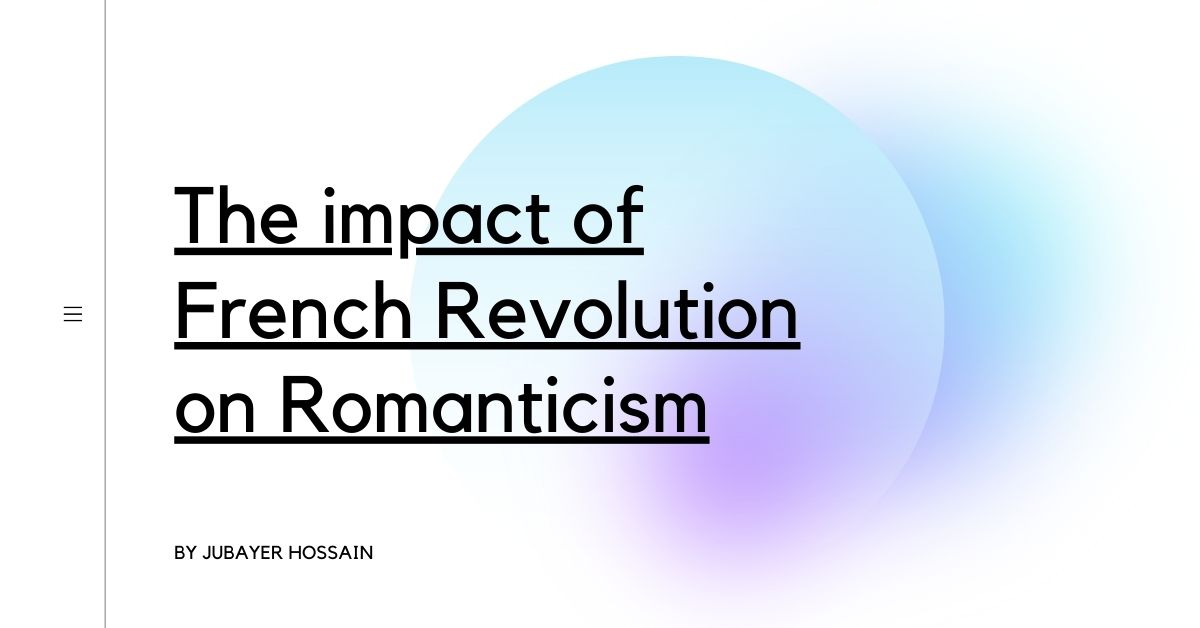Romanticism:
Known as the romantic era which was an artistic, literary, musical & intellectual movement. Romanticism is mostly characterized by emotion & individualism. It is said that “It was a reaction to the individual revolution. If we simply say _ all components were of modernity.
This movement emphasized deeper emotion as an authentic source. There embodied most significantly in the visual arts, music & literature. For this, there was also a complex effect on politics.
Good sides:
-major impact on historiography, education, social & nature.
-folk art became noble then
-individuals & artists got immense power to express themselves
-individuals imagination
-critical authority got freedom
French Revolution:
FR took place in 1789. The world was then dominated not only by force but also by ideas. Tremendous impact on every sphere of life and society. This revolution reached all across the EU & the other part of the EU as well. The slogan was “Liberty, Fraternity, Equality”. Influence left on English Literature (Wordsworth, Coleridge). They reflected their works on FR. Rousseau agreed to equality & equal rights for the sake of humanity.
Two notable writings were written on humanism by Wordsworth & Coleridge. Democratic poet PB Shelley & Lord Byron also focused on humanism. The other sides of FR those created frustrations to the romantics were terror l, bloody, etc.
Therefore, the huge impact of the revolution on the romantics is clearly illustrated by their poetic works.
Cause:
In general viewpoint, we find social & economic inequality, rapid population growth (18 to 26m), adequate finance, economic depression, unemployment & high food prices. Also, inefficient agriculture method.
Conclusion:
As the revolution began to play out, the absolute monarchy that had ruled France for centuries collapsed only in 3 years. This resulted in a complete transformation of society.
Prior to French Revolution, poems & literature were typically written for or about aristocrats, and clergy and rarely for the working-class people.
